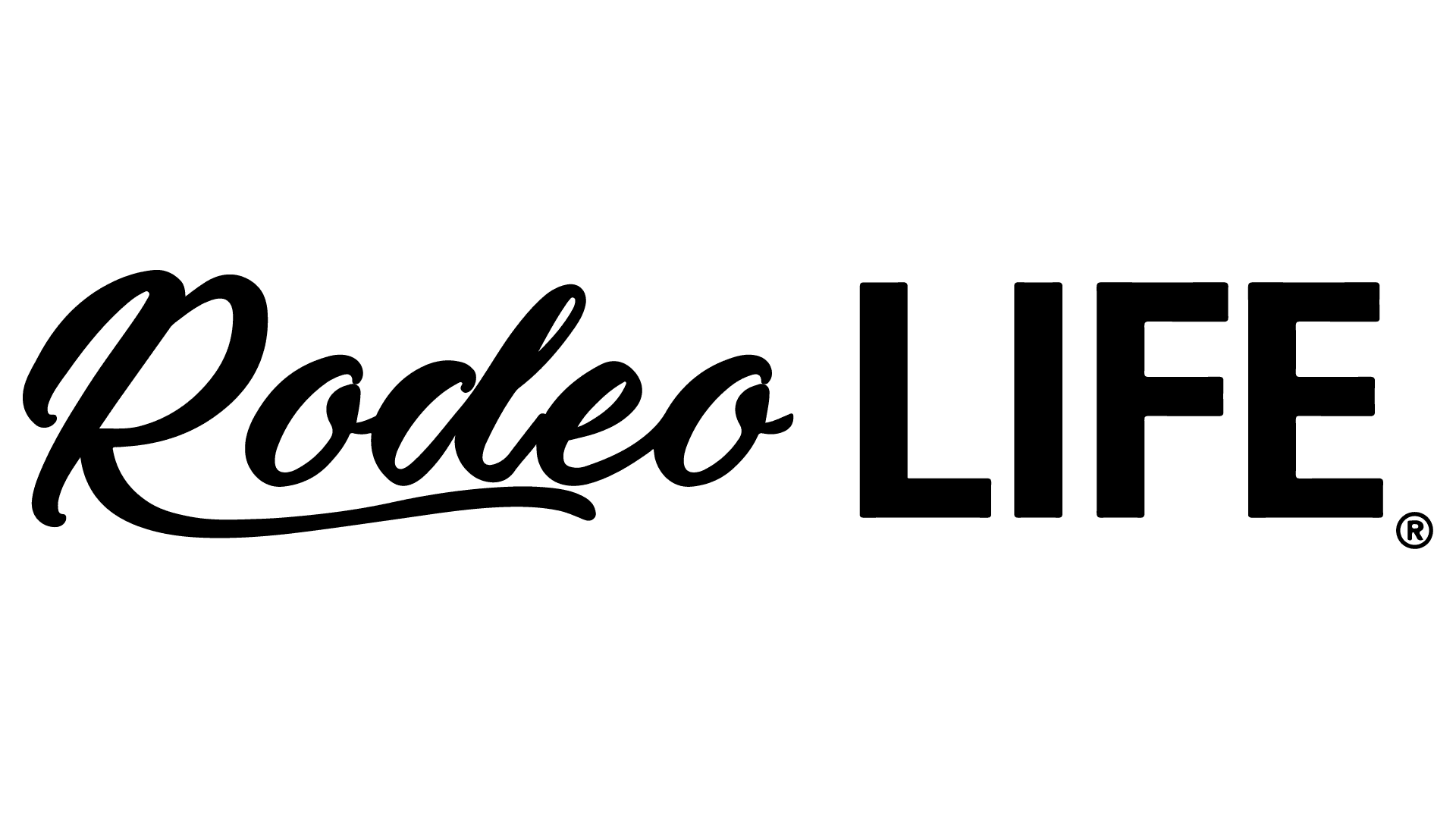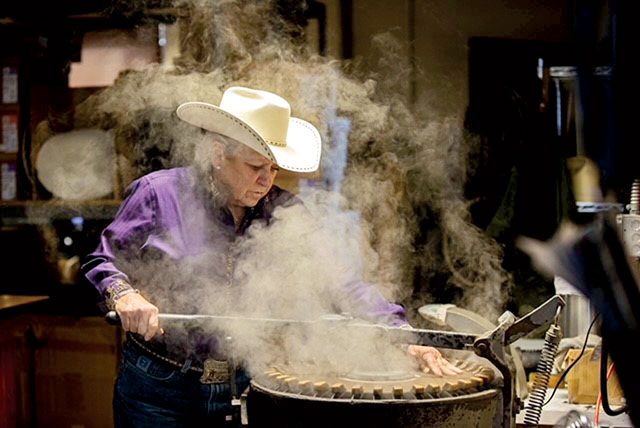“Something about me never wanted to work for somebody else,” says Lavonna “Shorty” Koger. The owner of world-famous Shorty’s Caboy Hattery in Oklahoma City, she forged the path of becoming one of the best-loved Western hatters in the country—one of few women to do so.
Before Shorty’s skilled hands knew how to sew sweatbands, shape crowns, and sand brims, they held the reins to her barrel horse and even slipped into a bull rope. She was born in 1945 in an area of Osage County, Oklahoma, called Gray Horse, roughly 20 miles outside of Fairfax, Oklahoma. The ranches and blue-stemmed grass permanently shaped her love of Western lifestyle. “There weren’t even fences out there. The cattle just roamed and it was wonderful,” Shorty recalls. “I came along seven years after my siblings and I was the shortest of the bunch, so they pinned Shorty on me when I was a baby. On Saturdays, our biggest treat was going to Fairfax for Mom and Dad to buy groceries. I saw Ben Johnson and Randolph Scott (Western film actors) dressed in cowboy shirts, wild rags, and their britches tucked into their boots, and I thought, ‘I want to look like them someday.’”
In 1956, her parents, Ivan and Vilora Koger, moved Shorty to Moore, Oklahoma, where Ivan transferred for his job with an oil company. “It was like moving me to New York City. We did rent a place in the country, but it was still a big town to me.” Shorty had a horse, however, and traveled with friends to compete in all-girl rodeos through the 1960s and into the early ‘70s. “I ran barrels and rode a few bulls, and I steer undecorated. In 1968, I had a bad accident helping someone build an arena and about cut my left arm off, so that ended my bull riding career for sure.” Shorty continued to raise horses and run barrels, dreaming of making the NFR. She had the horse to take her that far, Baldy, but when he cut his tendon, that dream ended. “I couldn’t get with another horse, so I gave it up in the ‘80s.”
While she was rodeoing, Shorty also worked for Cattleman’s Western Company in the Stockyards. “I had a camper on my truck to go to barrel racings. Texans at the time couldn’t get Coors beer and Wranglers, so I sold those and that’s how I made my entry fees. I’d also load up my camper and sell halters to ranchers.” Shorty eventually went on the road as the only woman salesman in the Oklahoma area for a time, selling for belt, boot, hat, and clothing companies. It wasn’t until her brother sent several of their dad’s hats to be renovated and they came back ruined that Shorty found the niche where she’d stick. “My brother said, “As much as you love hats, you should go into a hat cleaning business.’ A light bulb went off for me and I started investigating that business, and learned the people wouldn’t tell you anything that was helpful at all.”
However, Shorty accompanied a friend who was picking up a custom hat in Oklahoma City, and met another Shorty, this one a gentleman named Shorty Barnett, the owner of Shorty’s Hattery. “God works in mysterious ways if you just listen,” she says. Looking around his store and visiting about hats renewed Shorty’s determination to get into the business. After several more fruitless phone calls to other hat renovation businesses, she returned to Shorty’s Hattery. She learned that Barnett wanted to sell his business, but already had a buyer. “Of course, my heart just fell,” she recalls. “He said they were coming to pay Monday at 10, and I asked if they didn’t come if I could have it. I was there at 9:30. I paced his building and at one minute after 10, I handed him a check.”
It was 1990 and Shorty owned a business she knew hardly anything about. Barnett agreed to teach her, but they hit a snag since Shorty was left-handed. “But his mother was left-handed, and she showed me how to renovate hats. There’s sewing involved and all sorts of things which I flunked in school, but I got the hang of it.” Shorty worked out of a small building near the original store so the customers would carry over, then moved to the Historic Stockyards in 1991 to be closer to her cowboy clientele. She rented out part of the 1,900 square foot building to a boot maker and worked for several years renovating hats. Yet the itch to build one of her own kept growing, and she bought a blocking machine, which starts the entire hat building process. “I thought, ‘If I can renovate a hat, surely I can build one.’ I again called Shorty’s mom and dad, and they told me over the phone how to build one. There were a lot I had to throw in the trash because they were so pathetic looking, but I just kept trying and trying to get it right. It took about 10–15 years to get it right, but we’re about the best there is now.”
Shorty ventured out to cattle shows and 4-H and FFA shows during the day to sell several hats, then went back to her store and worked at night building more. She brought on a part-time employee, and today has two salesmen and eight people helping her build hats in the store. By 2014, Shorty had outgrown her store and moved to a 5,000 square foot building still in the Historic Stockyards, which they’ve nearly outgrown as well. “I couldn’t have done it without my brother and sisters. They helped me with the money, and I couldn’t have done it without their guidance.”
In the early 2000s, both Shorty and her sister Shirley were diagnosed with breast cancer, and sadly, Shirley passed away in 2004. “Right after I buried my sister, I had to go in and have a double mastectomy, but by doing that, I didn’t have to have chemo. Shirley didn’t have insurance, so I decided I wanted to do something to help people with cancer who didn’t have insurance, not knowing it costs hundreds of thousands of dollars. I made a pink hat and cute cancer hat pins.” When Tracie Anderson, an exhibitor from the AQHA World Show, came in to the Hattery to pick up a custom hat in 2006, she saw Shorty’s memorial fund for Shirley. It so happened that Tracie was the Clinical Operations Director for the OU Cancer Institute at the time. Together with Cheryl (Magoteaux) Cody, the three women formed Rein In Cancer. The organization first funded the Shirley Bowman Nutrition Center at the Charles and Peggy Stephenson Cancer Center in Oklahoma City. Today, Rein In Cancer, run entirely by volunteers, has raised over one million dollars, and also helps pay the medical bills of cancer patients who are involved in the horse industry. “The horse people get all the credit,” says Shorty. “You don’t know what people are like until you try to do a fundraiser and see everyone digging in their pockets to give.”
Much of Shorty’s work took off when she started selling hats at horse shows and rodeos. She set up her first booth at the AQHA World Show in 1993, and today Shorty’s Caboy Hattery is the official hat of the AQHA, NRHA, NCEA, and NRCHA. Shorty also sponsors the NLBRA, the IFR, Chris Neal’s Rising Stars event and a BBR race. “I love all the rodeos, and I decided I wanted to help them, and I appreciate them doing business with me. I’m also a sponsor of the IFYR and The American now,” she said. “I love my business and all my employees; some of them have been with me 25 years now.”
At 76, Shorty is in her store daily unless she and her partner, Bobbie Gough, are traveling to one of the 200 shows all over the country they take their booth to each year. “We’re blessed with doing so well at these shows, but it’s going to take a while to build the inventory back up,” says Shorty, who is dealing with delays getting her straw and felt hat materials. It takes four days to build a hat from start to finish, involving nearly 20 steps. The Hattery uses several machines—made in the 1920s or earlier—for blocking, ironing, and some of the sewing, but all other steps are done by hand. From crisp reiner and cutting shapes that emanate professionalism in the show arena, to custom hats in a myriad of colors, hatbands, stitching, and even tooling, each one is a work of art that Shorty loves. “They’re all my favorite. Everyone that wears my hats, I consider them a star. It’s such great pleasure when they put it on and it fits great.”
“I hope to go on doing it until I’m gone—I have no intention of retiring.”
Shorty’s exceptional craftsmanship and her work with Rein In Cancer was recognized by the National Cowgirl Hall of Fame and she was inducted in 2021. “I’m just so grateful that happened, and honored and blessed beyond means. This business has been a godsend. I give God all the glory because He’s the one who’s gotten me there today, and I’m very grateful.”









